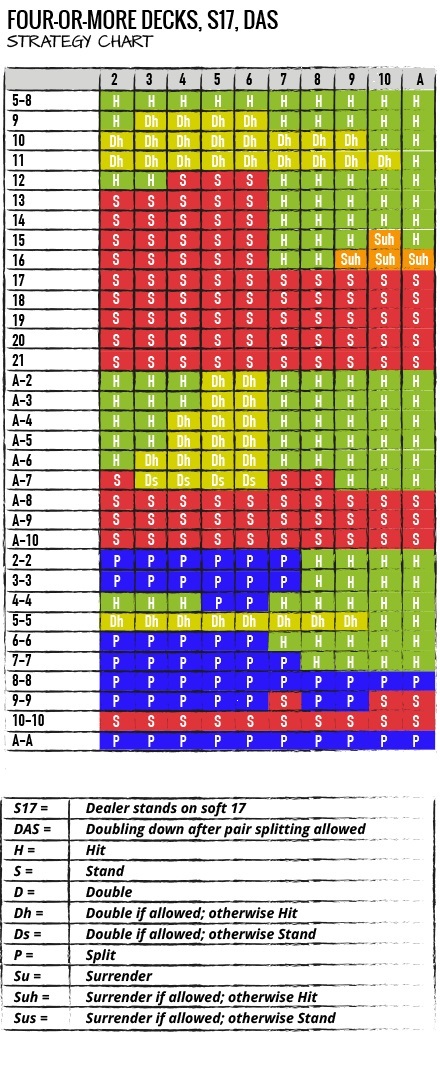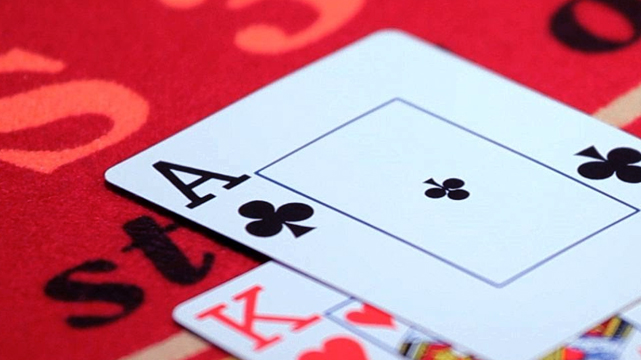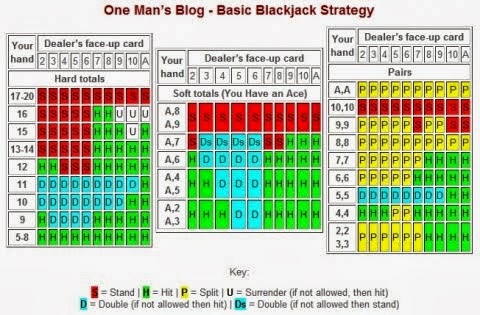When Should You Increase Your Bet In Blackjack
First Step: Understanding Progressive Betting
- When Can You Increase Your Bet In Blackjack
- When Do You Increase Your Bet In Blackjack
- When Should You Increase Your Bet In Blackjack Poker
- When Should You Increase Your Bet In Blackjack Real Money
Positive progressive betting systems are designed to get the most of the players’ winning streak, commanding a bet increase every time you score a winning blackjack hand. The stakes are raised systematically and lowered after the first losing hand. As a player you want to capitalize on a good run of cards and this strategy has some merits. Start with a 2 unit bet. If you win you reduce the bet to one unit. If you win that bet you increase to 3 units. Once the dealer wins you go back to your original 2 unit bet. A run of 10 hands could look like this: Wager Result +/-2 W +2; 1 W +3; 2 W +5.
When betting progressively at blackjack, you’re simply increasing your bet as you win hands. This style of wagering differs from that flat of betting, where you consistently stay at the same amount for each bet whether you win or lose the previous hand, and negative progression betting where you increase your bet after a previous losing hand.
Does progressive betting give you an edge over the house?
Simply stated, no betting system under the sun will give you an edge. You cannot convert or change the house edge no matter how you bet. However, intelligent use of progressive betting while winning hands can keep you in the game longer while minimizing your losses.

Positive Progressive Theory
Since in the long run the dealer will win about 52% of the hands, winning and losing streaks will occur almost equally between the dealer and the player. With that in mind, positive progressive betting is built upon the strategy of taking advantage and winning more when you have your winning streaks than what you lose when the dealer has his winning streaks.
An easy example of this would be a five-hand win streak for the dealer. If you’d bet one unit each of the five hands, your total loss would be five units for the dealer’s streak, If, however, you’d bet two units during each hand of a five-hand win streak in your favor, your total win for your streak would be ten units.
Combining the two streaks in which you won five hands and lost five hands, your overall profit would be five units, 33% of your total investment, which is quite favorable when you only won fifty percent of the hands.
Putting the Progressive Theory to work
The above analysis does not take into account that five-hand win streaks in either direction are relatively rare. It will happen only about one time in every twenty-five new five-hand slates for the player, so you want a progressive betting system that takes this into account and rounds out a better way for you to stay in the game.
The Key second hand

Virtually all positive progressive betting systems give maximum weight to the second winning hand of a streak, which of course is the very impetus of any streak no matter how long it may run. I personally think a 1-3-2-6 positive progression is a solid weapon for your blackjack attack.
To start off you bet one unit. If it loses you stay at one unit, but when it wins you increase your bet after the initial win to three units. If that bet loses you return to one unit, and if it wins you drop to two units. You follow the same betting tactic toward a maximum bet of 6 units, after which you return to one unit whether you win or lose the biggest bet.
Analysis

The possible results of each series are as follows:
- Lose 1st hand–minus one unit
- Lose 2nd hand–minus two units
- Lose 3rd hand—plus two units
- Lose 4th hand—break even
- Win four in a row—win twelve units
The key is to win the first two hands, after which you are at least guaranteed a break-even for the four-hand series. If you win the first two hands then lose the third, you have a two-unit profit for the series. If you win the first three hands then lose the fourth, you break even, but if you win that fourth hand and complete the series sweep you have a whopping twelve-unit profit!
And if you hit a streak of eight winners in a row you rake in twenty-four units!
Of course you would have won lots more on a more aggressive progressive (pardon the rhyme) during an eight-hand win streak, but you could have also given your entire profit back had the streak lasted a hand or two less.
This article was written by former professional casino cheater, Richard Marcus. Richard Marcus is also the author of American Roulette, a controversial book that reveals how he and other professional cheaters ripped off casinos.
More articles from Richard Marcus:
- Are you a high stakes player? Tilt the game in your favor.
- Rapid fire your way to card counting success. in 10 easy steps.
- Learn the basics of shuffle tracking.
- Learn more about hole-carding cheating method.
- What are the most common ways to cheat in Blackjack.
- For beginning advantage players, learn more about Multi Edge card counting.
- How to improve your level of advantage play with Ace-Steering.
Also read our section about various methods and strategies of Card Counting.
10 Crimes of Blackjack
By Henry Tamburin
Many players make horrible mistakes when they play blackjack. Here’s a list of the 10 worst crimes a player can make.
- The crime: Believing blackjack is all luck.
If you think that all you need is a little bit of “luck” to win at blackjack, I strongly suggest that you stop playing the game. Blackjack is not all luck. The reason? The odds of winning are not the same from one hand to the next because the removal of a card from a deck of cards will affect the odds (sometimes in your favor, other times in the dealer’s favor). It’s true that on individual hands, or even a single playing session, luck can influence the outcome, but in the long term, the player’s skill will overtake luck and a player can win more than he loses, or at the minimum, play almost even with the house.

- The crime: Not using basic strategy.
In was back in 1956 when a group of scientists changed the game of blackjack forever when they statistically determined the absolute correct way to play every hand. This strategy became known as the basic playing strategy and by using this strategy to play every hand, the house edge can be reduced to a minuscule 0.2 to 0.5% (depends on the rules and number of decks). The bottom line is this: blackjack is not a guessing game. If you hold a 10-5 and the dealer shows an 8 upcard, there is one and only one correct play. It doesn’t matter whether you are playing in a Midwest casino, in Las Vegas, or Atlantic City, or whether you just lost five hands in a row, or just won five hands in a row, or whether you are winning a lot or losing or lot, the correct play for this hand is to hit. To be skillful at blackjack means you almost have to be robotic and make the same correct plays according to the basic playing strategy hand after hand after hand. You don’t hit 10-5 against a dealer 8 sometimes and stand othertimes. You always hit. If you can’t or won’t accept this, then you should hang up your playing cards and play a different game because you will never make it at blackjack.
- The crime: Betting on side bets.
Nowadays, casinos have implemented side bets on blackjack tables as a way to increase their revenue because their edge on the game itself is razor thin. These side bets are cheap; usually, it only costs a buck to make them and they come in all different flavors: Pair Square (bet that you will be dealt a pair); Lucky Ladies (bet that you’re initial hand totals 20); Bonus Blackjack (bet that the dealer or player gets a blackjack), and so on. The problem with these side bets is that the house edge is high and although you might get lucky and win a few side bets, in the long run you’ll be donating a lot of money to the casino coffers by making these bets.
- The crime: Using a Progressive Betting System.
The majority of blackjack players use some form of progressive betting which means the player sizes his bet based on whether he won or lost the previous hand. The problem with progressive betting systems is that they don’t change the casino’s edge one iota. The odd of winning the next hand in blackjack isn’t dependent on what happened in previous hands (it is influenced by which cards were removed from the deck). So a player who uses a progressive betting system is deluding himself into thinking he has found the way to beat the house.
- The crime: Playing with a Continuous Shuffling Machine.
A continuous shuffling machine (CSM) is an automatic shuffler that randomly shuffles the cards after each round. Many casinos are replacing the traditional automatic shuffler with CSMs. The reason is because when a CSM is used, the house edge remains virtually the same from one round to the next. When a casino uses a CSM, they can also get roughly 20% more hands dealt per hour vs. a traditional automatic shuffler. The more hands that a recreational player faces per hour, the greater will be the player’s theoretical loss. So playing on a table that uses a CSM is a no-no. You should always play where the dealer is using either a traditional shuffler (where about 70% of the cards are dealt from the shuffler before all the cards are shuffled), or in a single- and two-deck game where the dealer manually shuffles the cards.
- The crime: Playing a single-deck game that pays 6-5 for blackjack
When Can You Increase Your Bet In Blackjack
Many casinos have implemented single-deck blackjack games where a player receives only a 6-5 payoff for a blackjack instead of the traditional 3-2 payoff (a 6-5 payoff means on a $10 bet you would get paid $12 for a blackjack instead of $15).These games are really bad news because the 6-5 payoff increases the house edge to roughly 1.4%. It’s a real crime to play any game where the casino pays only 6-5 on blackjacks.
- The crime: Not scouting the tables
When Do You Increase Your Bet In Blackjack
The playing rules are not necessarily the same from one table to the next or for that matter from one casino to the next. You shouldn’t just jump into a game without first knowing what the rules are and whether there are better rules on other tables. For example, a table where the dealer hits soft 17 is worst for a player than if the dealer stands on soft 17. Blackjack players should know which rules are player-friendly and which favor the house, and then scout the tables to find the best set of player-friendly rules.
- The crime: Playing when tired or inebriated
How many times have you seen the bleary-eyed player playing blackjack? Or the player that has consumed one to many alcoholic drinks. If you are tired, you shouldn’t be playing blackjack because you will be making too many playing mistakes. Ditto for consuming many alcoholic drinks while playing. Playing blackjack skillfully requires concentration and anything that disturbs your concentration will result in you losing more money (that’s why drinks are free to players).
- The crime: Not paying attention to the cards on the layout
When Should You Increase Your Bet In Blackjack Poker
Not too many recreational players pay attention to the cards on the layout. That’s a big mistake. For example, if you have seen a disproportionate number of small cards vs. large cards in the first couple of rounds after a shuffle, now would be a good time to bump up your bet slightly. On the other hand, if you see nothing but aces and faces in the early rounds, you should definitely not increase the size of your bet.
- The crime: Not getting rated
When Should You Increase Your Bet In Blackjack Real Money
You should always get rated when you play blackjack. The reason? This allows you to receive comps from the casino (free meals, free rooms, free shows, etc.). It cost you nothing to get rated. Just sign up for their player’s card and show it to the dealer every time you play. Your level of comps depends upon your level of play. You can always check with a casino host to find out what kind of comps you will be eligible to receive based on your betting level and the amount of time you play. The comps you receive will lower your cost of playing and sometimes they will turn a negative expectation game (where the house has the overall edge) into a positive expectation game (the game with the comps will result in the player having the monetary edge). The point is that you won’t get any comps unless you get rated, so don’t miss this opportunity to get your share of the billions that casinos give away annually to players just for playing.